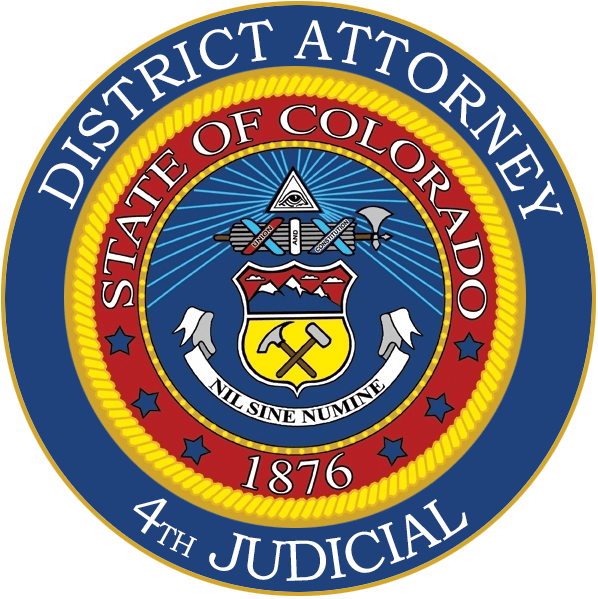Economic Crime
Our office prosecutes complex so-called “white-collar” crimes and businesses engaged in deceptive trade practices. The bulk of the cases which fall under the “white-collar” crime label include a wide variety of economic, business and consumer crime.
Examples of these crimes are:
- Computer Crimes
- Contractor Fraud
- Employee Embezzlement
- Financial Exploitation of the Elderly and At-Risk Adults
- Identity Theft
- Investment/Securities Fraud
- Insurance Fraud
- Welfare Fraud
- Unemployment Benefits Fraud
- Money Laundering
One of the goals of the office is to increase public awareness within the community, with an emphasis on the senior community. Topics include, how to be safe from financial exploitation, common scams, identity theft, and other financial crimes.
One of the ways the division meets this goal is to provide no cost presentations to organizations and groups in our community:
- The presentations were developed to provide fraud prevention, intervention, investigation/prosecution and victim support.
- They are beneficial to everyone, from young adults to seniors.
- We provide the community insightful information on crime trends and patterns.
- Educating the public acts as a deterrent to ID Theft and other financial crimes and should reduce the incidence of crime through public awareness. Contact our office today to request this useful presentation
Contractor Fraud
Contractors are required by law to hold funds in trust to be used for the project that is the subject of the contract. If a contractor spends your money on personal expenses or other people’s projects, then they may have committed theft. If a contractor causes a lien to be placed on your property by failing to pay a subcontractor or supplier, they may have committed theft. If they simply have not done the work to your satisfaction, that is probably not a crime, but rather a civil matter. If you think you have been a victim of contractor fraud, please report that to your local law enforcement agency.
The following are some tips to avoid being a victim of contractor fraud:
- Never pay the full amount up front for work to be done.
- Always get a written contract which specifies the work to be done, the deadlines for the work, and the type of materials to be used.
- Always investigate the background of the contractor.
- Call the Better Business Bureau and check their rating and reviews.
- Call the El Paso or Teller County Regional Development Department and make sure the prospective contractor is licensed in El Paso or Teller County to perform the type of work needed.
- Google the name of the contractor to learn if they have negative reviews or comments on line.
- Ask for references and talk to people who have used that company. Find out if the work was completed timely and was satisfactory.
- Don’t be rushed into deciding to hire a contractor without doing your homework first.
- Get a couple of bids so you can evaluate the fairness of the price.
- Remember that if a deal seems too good to be true, it probably is. It might be better to pay more and get the job done right than to pay less and not get it done at all.
- Use contractors who are local and established. Traveling repair companies are often scammers who take your money and don’t do any work.
Identity Theft
Identity theft is a large problem nationally as well as in El Paso and Teller counties. Never has it been more important to protect your identity than in the last several years. If someone has used your credit card information or forged checks on your account or used your social security number or other personal identifying information, it is important to contact law enforcement as soon as possible. There are time limitations on obtaining some important evidence so the sooner they can investigate, the better.
The following are some tips to avoid being a victim of identity theft:
- Secure your Social Security Number. Do NOT carry your card in your wallet. Only give out your SSN when absolutely necessary.
- Don’t respond to unsolicited requests for personal information by phone, mail, or online. This includes your name, birthdate, Social Security number, bank account number, etc.
- Regularly check your credit reports with the three credit reporting agencies.
- Collect your mail promptly. If you will be gone for several days, place a hold on your mail.
- Pay attention to your billing cycles. If bills or financial statements are late, contact the sender.
- Enable the security features on mobile devices, especially if you have banking websites and applications saved on the device.
- Update sharing and firewall settings when you are on a public wi-fi network.
- Review your banking and credit card statements regularly to check for unauthorized transactions.
- Shred receipts, credit offers, account statements and expired credit cards to prevent dumpster divers from getting your personal information.
- Store personal information in a safe place.
- Install firewalls and virus-detection software on your home computer.
- If you are mailing checks to pay bills, mail them from the post office not from your mailbox or a neighborhood mailbox.
- Create complex passwords that cannot be easily guessed. Change your passwords if a company with whom you do business has a breach of its databases.
Additional Resources
- Identity Theft
- Protect Yourself Against Identity Theft (PDF)
- Power Against Fraud (PDF by CASE Partnership)
- Consumer Fraud Info
- Consumer Reports
- Medicare Scams
- AARP Reports
The foregoing is not intended as legal advise, but rather for general knowledge and awareness purposes only.
Always consult an attorney before beginning a legal course of action.
